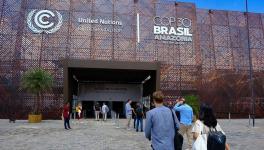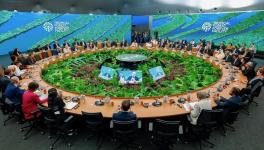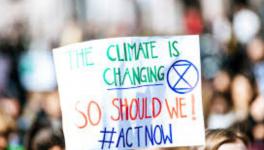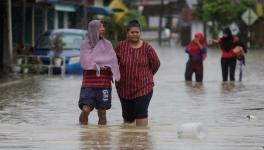Climate breakdown threatens food security and health in Iraq
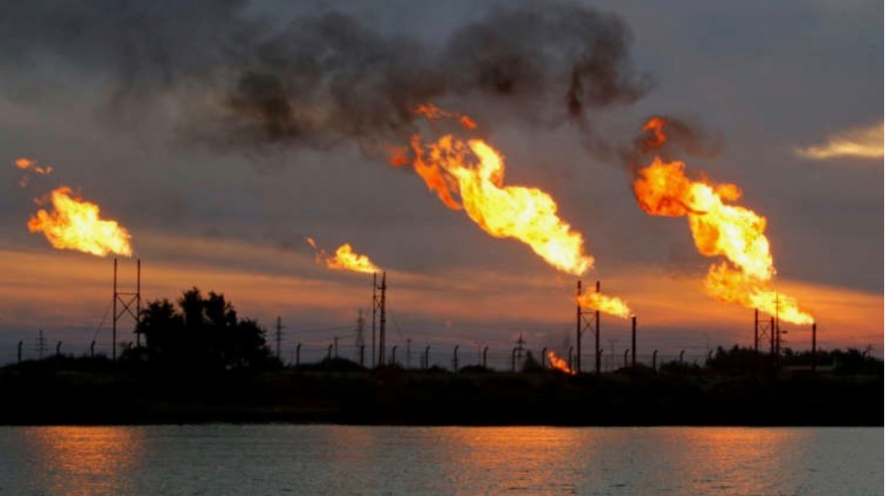
(Photo: via AMSI)
As another heat wave hit West Asia at the beginning of August, temperatures in Baghdad reached 51 degrees Celsius. “For a person like me, with access to air conditioning, this was unbearable. Imagine how it was for those with compromised health or compromised economic status,” says Muntather Hassan, a dentist working at the Iraqi Al-Amal Association, reflecting on the health effects of climate change in Iraq.
Hassan authored a report on the right to health in Iraq for this year’s edition of the Arab Watch Report. Alongside the issues faced by health services in the country, he particularly focused on the widespread problems of air pollution and obstacles in accessing safe food and water in Iraq—all problems which can be associated with the climate crisis.
Iraq ranks fifth on a 2019 list of countries most vulnerable to the effects of climate change published by the United Nations, affecting millions of people on a daily basis. While the government officially recognizes climate change as a problem for the Iraqi people, Hassan explains that the approach to finding solutions can be somewhat naive, just like in many other countries. “There is this mechanical, linear thinking like, there are sandstorms, there are heat waves, we will plant trees and it will be solved,” he says.
The reality is much more complex, and the effects of climate change intersect many areas of people’s lives. In the case of sandstorms and pollution, women are affected more than men, for example. “If we are talking about sandstorms, we are also talking about gender inequalities because women are the ones caring for the house and children in the first place. When there is a storm, in addition to the care work and exposure to the sand, they are also the ones to clean the house after the storm has passed,” Hassan says.
Even as standalone events, sandstorms are a major health concern in Iraq, leading to severe respiratory problems. As pointed out in the report, in just two months in 2022, 11 dust storms hit the country, leading to thousands of people seeking medical assistance for respiratory issues.
The worsening extreme weather conditions have also driven migration from rural to urban areas of Iraq. After the 2003 US-led invasion, the rural population of Iraq has shrunk as people moved to cities in search of employment in the public sector, especially security and military roles. While this course of migration is associated with the effects of climate change, it should also be considered as a contributing factor.
A large part of the agricultural sector in Iraq still relies on old farming systems that require more water to function, exacerbating water scarcity in already struggling areas in the south of the country. This, according to Hassan, has tremendous effects on food security and health in general. A shrinking rural population brings risks to food sovereignty as Iraq becomes more dependent on imports, affecting overall health as well.
The effects on the local food system have already had negative consequences on health. Hassan points out the high number of poisonings in many cities in southern Iraq, associated with food quality and water availability.
To top that, the already scarce resources are further depleted by multinational oil companies, including British Petroleum and Total, operating in the country. The presence of Big Oil in the vicinity of Basra has been associated with high rates of cancer in the area, caused by gas flaring—the burning of excess methane gas produced during oil operations.
The correlation between the activities of oil companies and cancer rates has been acknowledged by the government, but meaningful action is yet to be seen. Until that happens, the companies continue to exploit all natural resources in Iraq, multiplying the harmful effects on health.
“When they extract oil, they have to fill the ground with water,” explains Hassan. “For many years, they had been using the waters of the Euphrates river. Only this year they started to use seawater instead. While we have water scarcity, [the companies] are using the water for non-essential things,” he says.
People’s Health Dispatch is a fortnightly bulletin published by the People’s Health Movement and Peoples Dispatch. For more articles and to subscribe to People’s Health Dispatch, click here.
Get the latest reports & analysis with people's perspective on Protests, movements & deep analytical videos, discussions of the current affairs in your Telegram app. Subscribe to NewsClick's Telegram channel & get Real-Time updates on stories, as they get published on our website.









